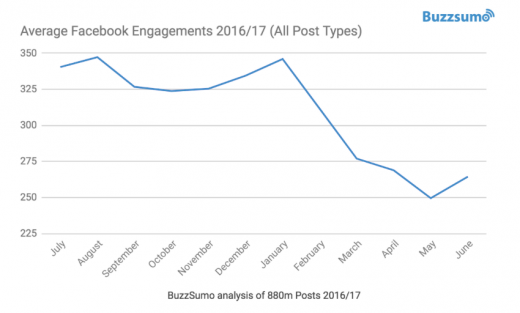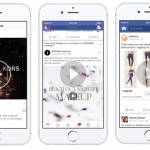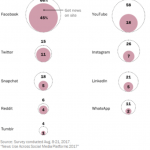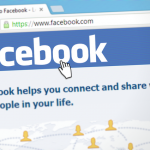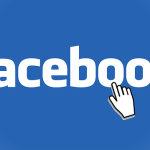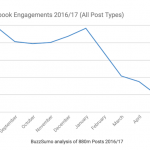Facebook Engagement Has Plummeted By 20% In 2017
— September 5, 2017
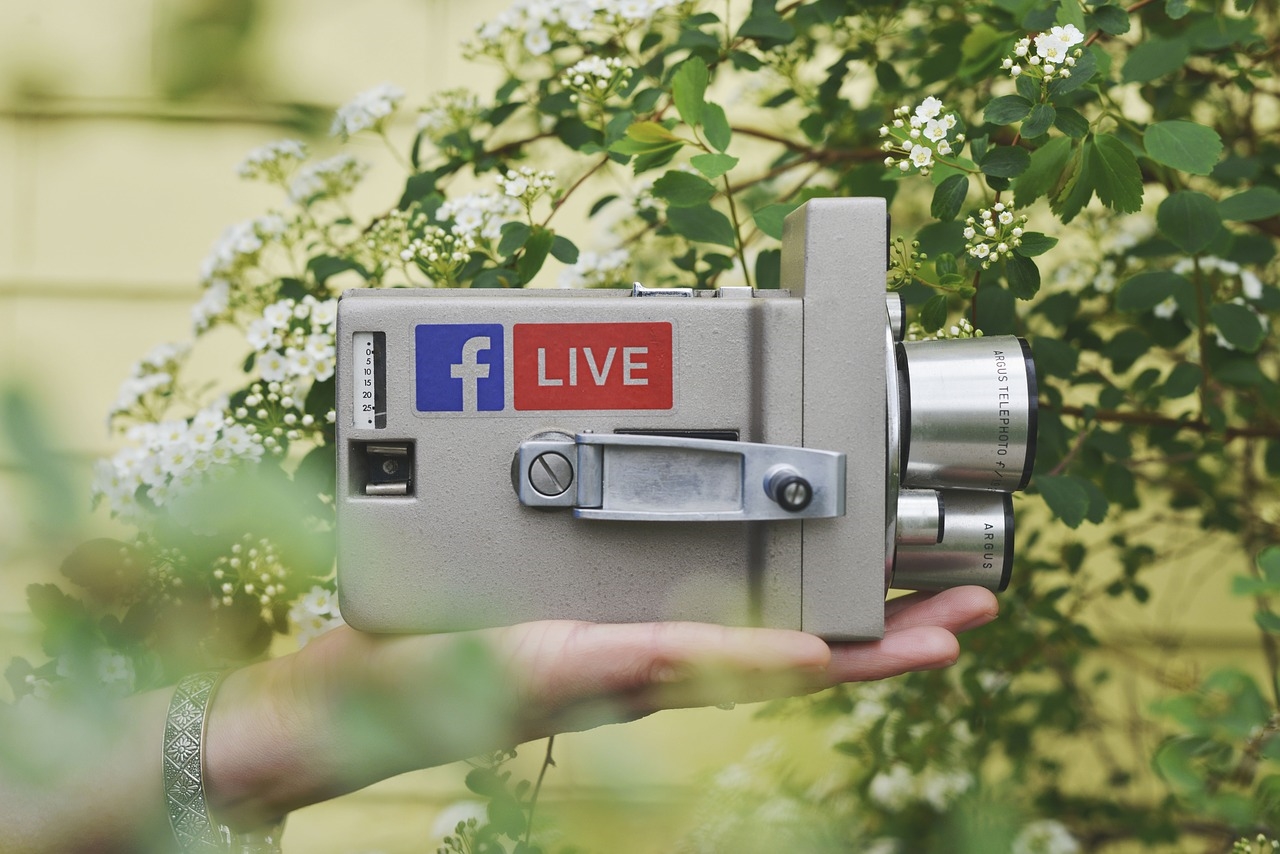
Photo Credit: Pixabay
If you run social for a brand or create Facebook posts for a publisher you may have noticed a giant dip in engagement in 2017. A new study by the team at Buzzsumo has revealed a 20% dip in user engagement for the first six months of 2017.
Buzzsumo analyzed 880 million Facebook posts published by brands and publishers over the previous 12 months and noticed the average number of engagements fell from 340 to 264.
The Biggest (And Smallest) Drops In Engagement
Image posts and link posts experienced the biggest drop off during that time while video posts saw the least number of engagement fall off.
Buzzsumo put together a chart that highlights the engagement numbers for June 2017.
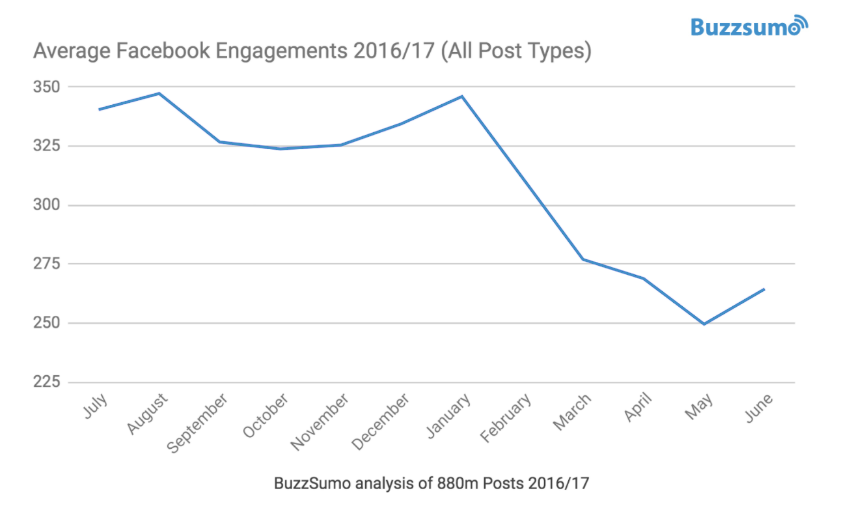
The company’s research examined 100 million Facebook videos for a smaller comparable subset.
So What’s With The Decline?
The Buzzsumo study examined both unpaid and paid posts which leaves a lot of room for interpretation.
If brands and publishers are spending less on promotion, engagement is likely to falter. Fewer eyeballs on posts causes less engagement across the board. Some studies, however, have shown an increase in Facebook ad spending, which would negate this possibility.
A more likely reason for the drop is a general decline in organic reach. This occurs when more publishers add content to Facebook, leading the social network’s users to engage less with the growing amount of content, it’s a simple lesson in supply and demand.
On average, Facebook says 1,500 stories now appear in a typical user’s daily feed. With that much competition, there is going to be a natural drop off in engagement.
Keep in mind, the January 2017 readings arrived shortly after President Trump was elected to the White House. Engagement is typically up during a Presidential election cycle because of the divide that leads to discussions and arguments across most social platforms.
How Can This Issue Be Combated?
First, don’t publish fake news or headlines that are full of clickbait. Over the previous 12 months, the world’s largest social network has taken steps to tweak its algorithm, removing much of the engagement going to posts that offer little or no real value to readers.
Second, place an emphasis on testing different types of posts. Links, photos, videos, they all play a part in engagement numbers and can vary across different niches. Publishers and brands are constantly reminded by Facebook to “boost” certain posts that have typically worked well for other publishers.
Next, create original “social first” posts that speak to your audience. The goal here is to create natural engagement by speaking directly to your Facebook audience. GIFs, videos, posts that are written specifically for Facebook, all play a part in user engagement.
Finally, if you are paying for engagement, test, test, and test some more. For example, if you run a left-leaning political news platform, there are certain demographics you can target through Facebook interest groups, these include people that are “Likely To Vote Liberal” or support “Bernie Sanders.” Hyper-targeting has been one proven tactic in the battle to increase Facebook post and page engagement.
Ultimately, organic reach is down and can be at least in part buoyed by paid placements. The Facebook Power Editor, AdEspresso, and other similar platforms can help A/B test dozens and even hundreds of ad variations and post boosts at the same time, and for very little added expense.
We recently wrote an article about 5 Facebook advertising tools that will save you time and money.
The General Decline Of Facebook Engagement
Various publications have warned that Facebook page engagement is continuing to slip.
Socialflow Survey in June 2016: 42% decline in organic Facebook reach.
Marketing Land Survey in August 2016: 52% fall in publisher organic reach on Facebook.
Kurt Gessler of the Chicago Tribune in January 2017: One-Third decline in Tribune engagement.
Facebook page engagement is likely to worsen as thousands of new publications and brands join the social network on a daily basis. At the end of the day, it’s quality content that will drive your followers back to your page organically and that will ultimately help you secure more engagement, even as the network as a whole experience a general decline.
At the end of the day, it’s quality content that will drive your followers back to your page organically and that will ultimately help you secure more engagement, even as the network as a whole experiences a general decline.
Digital & Social Articles on Business 2 Community
(25)

